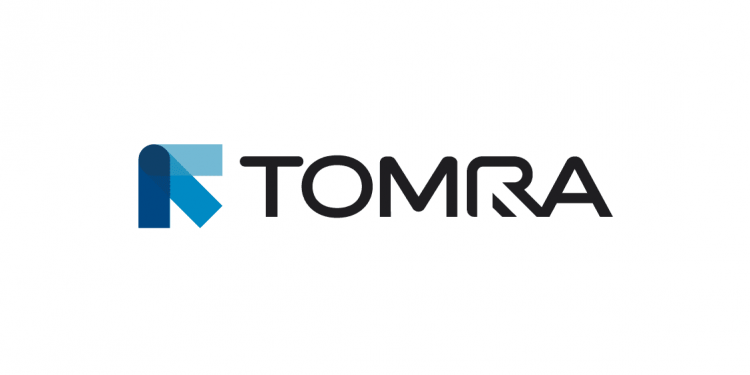With fresh vegetable sales boosted by people cooking more at home during the COVID-19 pandemic, many potato fresh packers are stretched to capacity. Some are even turning away work because they are too busy to handle it. Other packhouses, however, have the capacity to spare but are unable to win new business. Two very different situations, but frequently explainable by the same reason: technical capabilities. Packers can no longer gain or retain big customers without having the technologies which enable them to operate with high productivity and flexibility.
High productivity means maximizing throughputs while minimizing waste. Flexibility means being able to switch the line from one potato type or product specification to another with minimal downtime. Both these operational necessities are especially important now that the coronavirus crisis has disrupted traditional food-shopping habits and fueled demand for fresh potatoes. Many potato fresh packers find themselves under unprecedented pressure to deliver greater product volumes, yet at the same time, they must continue to meet more and more stringent product specifications. And they must be able to alter those specifications at short notice with precision and speed.
The need for flexibility is perhaps most clearly seen in the way that supermarket chains tempt shoppers with special product offers. Such ‘specials’ are an important weapon in the battle between retailers but have profound knock-on effects for packhouses because they can change quickly from one week to the next. A packer might be asked on a Friday afternoon to source and supply by early the following week a certain variety of potato, to a precisely defined size and standard, without any visible blemishes, in bags of an exact weight. These challenging, multiple requirements can only be met by having state-of-the-art sorting machines.
The need for productivity is more predictable: in the interest of profitability, it is a necessity every day of every week. Packhouses must strive to keep lines busy packing the greatest possible volume of potatoes, but more than this, they must also extract maximum commercial value from what’s passing down the line. Early indications as to whether this is being achieved can be seen in two vital key performance indicators, bags-per-minute, and pack-out percentages. Yet these figures are too often disappointing. Pack-outs rarely exceed 80% and are commonly as low as 60%.
The fact that packers are losing 20-40% of the incoming product would astonish productivity experts in other industries. Worse still, these inefficiencies are costlier than they seem. A case study conducted in Canada in 2017 by the Ontario Produce Marketing Association, in conjunction with EarthFresh Foods and consultants VCM International, found that a 29% increase in pack-out will improve the grower’s profit margin by 74%. It’s worth pausing for a moment to think about that.
These findings emphasize the significant value of product recovery. Packing Grade 1 potatoes in clear bags might seem like good business because the product is premium-priced, but profitability often depends on the less obvious: the capability of recovering inferior potatoes from the line for sale as Grade 2 product. In other words, extracting maximum value from the potato pile. This means the packhouse must have the ability to differentiate between grades accurately and consistently. Again, this is something that can be accomplished only by using state-of-the-art sorting machines.
Though optical sorters are best known for protecting food safety and ensuring consistent product quality, it’s worth remembering that sorters also enable lines to optimize productivity and to react to changing customer requirements with fast-moving flexibility. These advantages will always help packhouses gain and retain business, even if consumer demand for fresh potatoes might slip back a little after the COVID-19 pandemic has, at last, passed.
About TOMRA Food
TOMRA Food designs and manufactures sensor-based sorting machines and integrated post-harvest solutions for the food industry, using the world’s most advanced grading, sorting, peeling and analytical technology. Over 8,000 units are installed at food growers, packers and processors around the world for fruits, nuts, vegetables, potato products, grains and seeds, dried fruit, meat and seafood. The company’s mission is to enable its customers to improve returns, gain operational efficiencies, and ensure a safe food supply via smart, useable technologies. To achieve this, TOMRA Food operates centers of excellence, regional offices and manufacturing locations within the United States, Europe, South America, Asia, Africa and Australasia.
TOMRA Food is member of the TOMRA Group that was founded on innovation in 1972 that began with design, manufacture and sale of reverse vending machines (RVMs) for automated collection of used beverage containers. Today TOMRA provides technology-led solutions that enable the circular economy with advanced collection and sorting systems that optimize resource recovery and minimize waste in the food, recycling and mining industries.
TOMRA has ~100,000 installations in over 80 markets worldwide and had total revenues of ~9.3 billion NOK in 2019. The Group employs ~4,500 globally and is publicly listed on the Oslo Stock Exchange (OSE: TOM).
For further information about TOMRA, please see www.tomra.com






